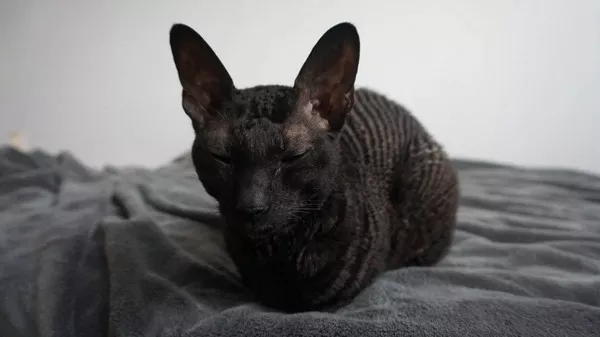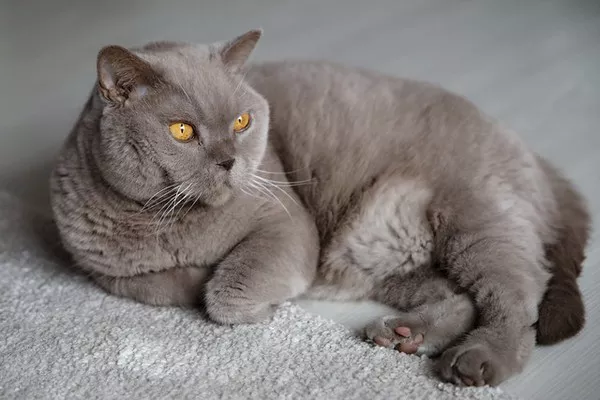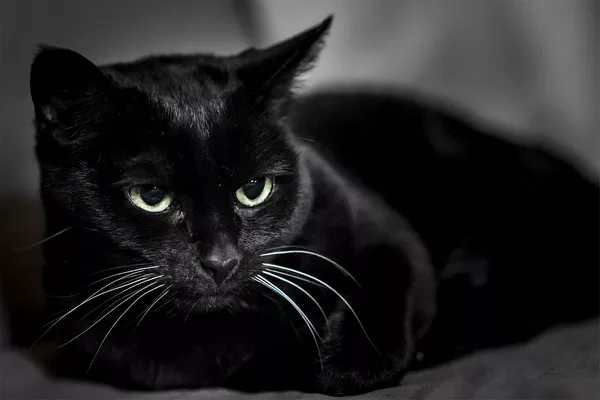The Cornish Rex is a unique and charming breed known for its distinctive appearance and lively personality. When it comes to the care and feeding of these delightful felines, it’s crucial to establish a proper feeding routine to ensure their health and well-being. In this article, we will explore the dietary needs and feeding schedule for Cornish Rex cats, shedding light on how often you should feed them to keep them healthy and happy.
Understanding the Cornish Rex Breed
Before delving into their dietary needs, it’s essential to familiarize ourselves with the Cornish Rex breed. These cats are known for their distinctive physical characteristics, including:
Curly Fur: Cornish Rex cats have a unique coat that is short, curly, and soft to the touch. Unlike other breeds, they lack the traditional guard hairs found in cat fur, giving them their distinctive appearance.
Slender Build: Cornish Rex cats are known for their slim and elegant bodies. They are muscular, agile, and graceful in their movements.
Large Ears and Eyes: These cats have prominent, large ears and expressive, oval-shaped eyes.
Friendly and Playful Personality: Cornish Rex cats are known for their affectionate, social, and playful nature. They often enjoy interacting with their human companions and thrive on attention.
Dietary Needs of Cornish Rex Cats
To determine how often you should feed your Cornish Rex, it’s crucial to understand their dietary requirements. Like all cats, Cornish Rex cats are obligate carnivores, which means that their diet should primarily consist of animal-based protein. Here are some key considerations for their dietary needs:
1. High-Quality Cat Food
Providing your Cornish Rex with a high-quality commercial cat food is essential for meeting their nutritional requirements. Look for cat food that lists a quality source of animal protein, such as chicken, turkey, or fish, as the first ingredient. Avoid foods with excessive fillers, artificial additives, or preservatives.
2. Protein Content
Cornish Rex cats require a diet with a higher protein content compared to some other breeds. Protein is essential for maintaining their lean muscle mass and overall health. Aim for cat food with at least 30-40% protein content.
3. Adequate Fat
Fat is another important component of a Cornish Rex’s diet. It provides essential fatty acids that support their skin and coat health. Look for cat food with a moderate fat content, ideally around 15-20%.
4. Limited Carbohydrates
Cornish Rex cats have relatively low carbohydrate requirements. Their diets should be low in grains and carbohydrates, as their digestive systems are better suited to processing animal-based protein.
5. Fresh Water
Always provide your Cornish Rex with access to fresh, clean water. Hydration is essential for their overall health, and water should be available at all times.
6. Portion Control
Cornish Rex cats can be prone to overeating, so it’s important to monitor their portion sizes to prevent obesity. Consult with your veterinarian to determine the appropriate portion size for your specific cat based on factors like age, weight, and activity level.
7. Consult with a Veterinarian
Consult with your veterinarian to create a personalized feeding plan for your Cornish Rex. They can provide guidance on portion sizes, recommend suitable cat food brands, and address any specific dietary concerns or health issues your cat may have.
Feeding Frequency for Cornish Rex Cats
Now that we have a better understanding of their dietary needs, let’s explore how often you should feed your Cornish Rex. The feeding frequency for these cats can vary based on several factors:
1. Age
Kittens have higher energy and nutritional needs compared to adult cats. If you have a Cornish Rex kitten, they will typically require more frequent meals, usually three to four times a day. As your kitten grows and matures, you can gradually transition to a less frequent feeding schedule.
2. Adult Cornish Rex Cats
Once your Cornish Rex reaches adulthood, around one year of age, you can establish a regular feeding schedule. Most adult cats do well with two meals per day—once in the morning and once in the evening. This schedule aligns with their natural behavior as cats are crepuscular animals, meaning they are most active during dawn and dusk.
3. Monitoring Weight and Activity Level
It’s essential to monitor your Cornish Rex’s weight and activity level to adjust their feeding frequency and portion sizes accordingly. If your cat is very active and burns more calories, you may need to provide smaller, more frequent meals. Conversely, if your cat is less active or prone to gaining weight, you might opt for smaller, controlled portions.
4. Special Dietary Needs
Some Cornish Rex cats may have special dietary needs due to health conditions or sensitivities. In such cases, your veterinarian may recommend a specific feeding schedule, portion size, or prescription diet to address their unique requirements.
5. Free Feeding vs. Scheduled Meals
While scheduled meals are generally recommended for portion control and to monitor your cat’s eating habits, some owners choose to free-feed their Cornish Rex. Free feeding involves leaving food out for the cat to eat as they please. However, this method can lead to overeating and obesity in some cats, so it should be approached with caution.
Conclusion
Feeding a Cornish Rex cat involves understanding their unique dietary needs and establishing an appropriate feeding schedule. These delightful felines thrive on high-quality cat food that is rich in animal-based protein and low in carbohydrates. It’s important to monitor their weight, activity level, and overall health to adjust their feeding frequency and portion sizes as needed.
As a general guideline, Cornish Rex kittens may require three to four meals a day, while adult Cornish Rex cats typically do well with two meals a day. However, individual variations may occur based on factors such as age, weight, activity level, and any special dietary requirements.
To ensure the health and well-being of your Cornish Rex, consult with your veterinarian for personalized feeding recommendations and guidance on maintaining a healthy diet and lifestyle for your cherished feline companion. With proper care and attention to their dietary needs, your Cornish Rex can enjoy a long and healthy life full of playfulness and affection.


























